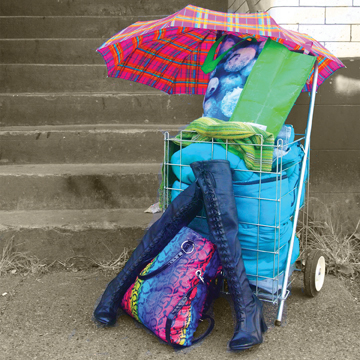Slumming - Exploring the DTES

Drama
“Slumming” is a new work by Barbara Ellison; Ellison also directs. The show introduces us to the complex lives of recently fallen from grace, middle-class Grace, played by Terri Anne Taylor, and a young sex worker Brittany, played by Stevie Jackson. The program notes tell us the play had its genesis in the Downtown East Side (DTES) as Ellison observes a sex worker at work from the rehearsal hall at the Firehall.
The very nature of this removed observation is my key issue with this play. Ellison experiments with a “day-in-the-life” reflection of the commonality of humanity in all of women regardless of background or class by tackling giant issues such as sex work, foster care, infidelity, suicide, murder, rape, and homelessness, however I was left feeling like these issues were observed from a second floor window. I think the lack of success with this experiment is best reflected by Brittany as she lays critical the attempts of” those women” who work in the shelters who try support, but don’t really understand, her life on the street.
This lack of understanding of street life is further highlighted by many of the staging choices. The characters walk away from their prized possessions including Brittany, the sex worker, often leaving the “boots containing her loot” several feet away. Overall, Taylor and Jackson’s portrayals of these women show the care needed to attempt to tackle the complex issues these women face. The actors grew the rapport between their two characters appropriately and left me feeling the transformation the encounter had on each of them. Their characterizations were nicely supported by the design of Meghan O’Neill who use of sound clips and minimal set had me imagining the many places the set could be representing. Further, Ellison’s descriptions of the place delivered through smooth and natural dialogue really brought me to the DTES. Themes aside, Ellison ability to revealing a story through dialogue is lovely to watch. “Slumming” works best when it focuses on the simple stories in these women’s lives and stays clear of the greater context of the DTES and misogyny.



